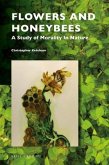

10,95 €
Sofort per Download lieferbar
Broschiertes Buch
How Cowboys, Capitalism, and Corruption Are Ruining the American West
21. Juli 2020
Penguin Publishing Group
Ähnliche Artikel

Gebundenes Buch
27. Oktober 2022
Creative Media Partners, LLC


Broschiertes Buch
Tusculum auf Mapprach
13. August 2019
Christoph Merian Verlag



Gebundenes Buch
ما وراء الحكاية دراسات أخلاقية في القصة ال
1. August 2024
Brill

Gebundenes Buch
قراءات في عيون التراث الأخلاقي الإسلامي
12. Dezember 2024
Brill


Gebundenes Buch
History and Phenomenology of a Janus-Faced Emotion
10. November 2023
Brill

Gebundenes Buch
On the Kinship of Spirit and Thought: John Henry Newman and Edith Stein
16. Juli 2021
Brill
Ähnlichkeitssuche: Fact®Finder von OMIKRON
